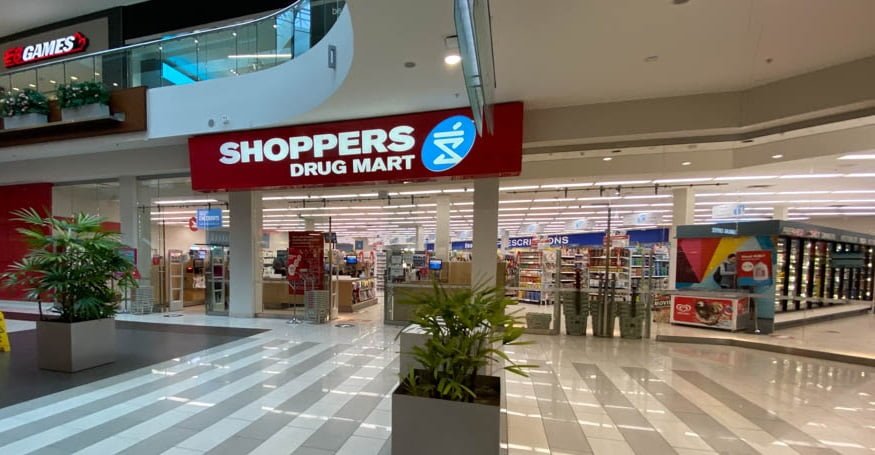Toronto-based health-focused snack brand Rawcology is taking proactive steps to safeguard its operations in response to potential U.S. tariffs and the looming end of the de minimis exemption. Co-owners Megan Loach Tomulka and Tara Tomulka are assessing their supply chain, distribution channels, and pricing strategy to navigate the uncertainty caused by policy shifts under U.S. President Donald Trump’s trade agenda.
Rawcology is not alone in facing these challenges. A collective effort among Canadian consumer packaged goods (CPG) companies has emerged to share insights and strategies. “There’s a real sense of camaraderie and urgency in the industry right now,” said Megan Loach Tomulka. “We’ve seen multiple initiatives come together, including webinars and online registries, aimed at connecting Canadian businesses with domestic and international suppliers.”

One such initiative involves Arlene Dickinson and Anthony Lacavera creating an international supplier database to help Canadian businesses identify alternatives to U.S.-based suppliers. Additionally, founders from brands such as Knix and Mini Mioche have launched online registries to showcase Canadian manufacturers.
“We’re seeing an unprecedented effort to highlight Canadian businesses and strengthen our supply networks,” added Loach Tomulka. “It’s about ensuring we can continue to grow despite the challenges these tariffs could bring.”
Supply Chain Disruptions and Ingredient Sourcing
Rawcology relies on several ingredients sourced from the U.S., including organic banana puree, natural organic flavours, organic tapioca syrup, and organic peach puree. With the threat of a 25% tariff on these goods, the company is now looking for Canadian alternatives.
“We’re doing everything we can to avoid passing these costs onto consumers,” said Tara Tomulka, who oversees ingredient sourcing. “For example, we had a Canadian supplier for our organic peach puree, but they faced crop issues due to weather conditions, which forced us to source from the U.S. Weather plays a huge role in organic farming, making it difficult to secure stable suppliers.”
The company has been leveraging its industry network to identify alternative suppliers within Canada. “It’s been incredible to see the support from other brands,” added Tara. “We’ve been reaching out, asking, ‘Do you know who carries this ingredient?’ and working together to secure Canadian sources. But it’s not easy—organic ingredients are already scarce, and minimum order quantities present another challenge.”
Cost Management: Absorbing or Passing on Increases?
With potential tariff-driven cost increases, Rawcology must evaluate whether to absorb them or pass them on to consumers.
“We’re already positioned as a premium organic brand, so our consumers are cost-sensitive,” said Megan. “Our mission is to make nourishing organic food more accessible, which means we work hard to keep our price points reasonable. Passing the cost onto the consumer is a last resort.”
Instead, the company is considering alternative strategies, including reducing trade spend, re-evaluating marketing investments in the U.S., and shifting to Canadian suppliers whenever possible. “It’s a difficult industry with small margins, and every decision counts,” Megan added.

The De Minimis Exemption and U.S. Direct-to-Consumer Sales
Another major concern for Rawcology is the potential removal of the de minimis exemption, which currently allows Canadian businesses to ship products under $800 to U.S. consumers without import duties.
“Around 32% of our direct-to-consumer sales go to the U.S., and most orders fall between $75 and $125,” Megan explained. “If this exemption is removed, our U.S. customers could face additional shipping costs, which would impact our online sales.”
To mitigate this, Rawcology is exploring options such as stocking larger quantities in a U.S.-based fulfillment centre. “By shipping in bulk and storing inventory in the U.S., we could reduce the impact of tariffs at the retail level,” Megan noted. “This approach would ensure our products remain competitively priced for American consumers.”
Exploring New Markets and Strengthening Domestic Presence
Despite these challenges, Rawcology sees an opportunity to strengthen its position in Canada and expand into new international markets.
“One of the biggest takeaways from this situation is that we need to focus on winning in our own backyard,” Megan emphasized. “We’ve identified gaps in our presence in Quebec and British Columbia, and we’re working on increasing distribution there.”
Beyond Canada, the company is looking to expand its footprint in Europe, where it already has a distributor. “We’re well-positioned for the European market because we meet their stringent food safety standards,” Tara noted. “We just passed our organic EcoCert audit, and that certification makes it easier to enter new international markets.”
Consumer Support for Canadian-Made Products
While the potential tariffs pose significant challenges, one positive outcome has been an increased consumer preference for Canadian-made goods.
“I was at a demo at a Sobeys location on the weekend, and at least 50% of customers asked where our products were made,” Megan shared. “When I told them we manufacture in Toronto, many said, ‘Great, I’ll take two bags.’ Some even bought just to support Canadian businesses.”
This growing sense of economic nationalism could provide a boost for Canadian brands. “There’s definitely a rallying cry to support local manufacturing and products,” Megan added. “At the same time, we need to strike a balance—our American customers are still important to us, and we don’t want to alienate them.”
Looking Ahead: Navigating the Future
As Rawcology adapts to these potential trade shifts, the company is exploring all possible solutions, including working with U.S. co-packers to manufacture products stateside.
“We’re considering a hybrid approach,” Megan explained. “We’d maintain our Canadian manufacturing for our domestic market while partnering with a U.S. co-packer to produce items sold in the U.S. This way, we could avoid tariffs while continuing to support our Canadian workforce.”
Despite the uncertainty, the co-founders remain optimistic. “Entrepreneurship is all about problem-solving,” Megan concluded. “This is just another challenge we need to tackle with urgency, but not panic. The natural food community is strong, and we’re confident we’ll find a way forward.”
















